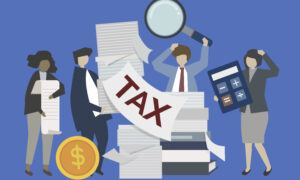
Just wanna have fun? And healthy finances? And live within a budget? Is that a thing?
Well, yes. It’s a thing. You can have fun and have healthy finances and live within a budget.
You should budget for fun activities
While a budget may seem restrictive, it really provides you with a lot of freedom. Freedom to allocate your earnings within some set guideposts in a way that meets your unique needs (must-haves) and wants (nice-to-haves). We all enjoy the freedom of the open road but also know the importance of staying in our lane. A budget helps you stay safely in your financial lane.
Here are four reasons to budget for fun activities
1. Peace of mind
Setting aside some money for fun activities is key to peace of mind in spending. You can be calm and enjoy yourself when you know you planned for this fun expense and it fits within your overall financial goals.
On the other hand, a great way to ruin your fun time is to be consumed by how much it’ll cost you later. If that happens to you, your thoughts might sound something like, “Hmm. I’m having a great time, but I wonder how much this dinner and concert will cost me in credit card interest? I might have to put off the new tires I’ve been needing.”
2. You’re likely going to spend on fun anyways
While it may be possible to cut your expenses down to just necessities to meet a particular goal or need, it’s not likely to be doable in the long term. Making room in your budget for an item or event you particularly enjoy will allow you to experience the benefits of your hard work and planning. This will likely help you maintain your budget or spending plan long-term.
3. Help prevent overspending
Without a plan, we tend to overspend. It’s that simple.
4. Can be motivating, with a focus on the future and reaching goals
It’s amazing what a person can accomplish when they’re motivated. It could be that budgeting for a fun item or activity you really want will help you keep to your overall budget. You’ll also be able to build your muscle of future planning by looking into the future, choosing your fun activity, and creating a savings goal or a goal to increase your earnings.
So, how can you budget for fun activities?
1. Look ahead and be specific
As you’re preparing your budget or spending plan, look ahead and think about what fun activity or activities you want to do this month or in the coming months. Now, be specific and estimate how much each activity will cost and when you want to spend that money. If you have a larger event, you can save some “fun” money each month to meet your goal. Say in three months, you want to spend $120 on a night out. You can save $40 in fun money for three months to pay for that larger event. Or you can choose to have one $40 fun event per month and skip the larger event. That’s where step two comes in.
2. Prioritize
Once you have your list, you’re ready to prioritize. Put the fun activities in order from what you’d most like to do to what you’d least like to do. Consider whether you want to save up and spend on a more expensive activity or prefer to spend smaller amounts more frequently.
3. Keep a balance
Of course, it’s important when you’re budgeting for fun that you’re making sure those needs, the must-pays in your financial life, are happening first. Check out my article on intentional spending.
Ok, now. Go budget for fun activities.


